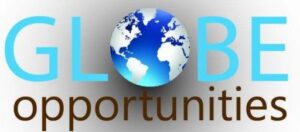
Deadline: September 14,2019
InfoNile invites journalists of all ages in the Nile Basin countries to submit proposals for in-depth investigative multimedia journalism stories on adaptation and mitigation solutions to climate change in cities of the Nile Basin.
This project is supported with funding from the National Geographic Society.
These stories are part of a series of stories focusing on climate change solutions and will also feed into a final data journalism project including interactive maps and stories.
InfoNile is a collaborative cross-border group of environmental journalists with a mission to uncover critical stories on water issues in the Nile River Basin of Africa through data-based multimedia storytelling. We work on investigative multimedia data journalism projects on critical issues of water and environment across the Nile Basin; past investigations have included issues of land grabs across the Basin, community-based solutions to wetland destruction in East Africa, and the environmental and health impacts of Sudan’s oil and gas industry. InfoNile is a project of Water Journalists Africa, a network of about 700 journalists in Africa spread across some 50 countries that report on water.
The Nile Basin hosts some of the world’s most rapidly urbanizing cities. Story pitches should focus on innovative adaptation/mitigation solutions to climate change in cities in the journalist’s home country.
While much has been said about the global science of climate change, we want you to connect the science, theory and country-level data to the reality of how people in your country are being affected on a daily basis – and how they are coming up with innovative solutions.
Although some actions in Nile basin cities are contributing to climate change, individuals and organisations within these cities are also implementing extraordinary initiatives to fight climate change. And some of these projects are working.
Questions to answer in your story: Which scalable project is serving as an innovative model for tackling climate change in your city? How does it work? What data or other evidence can you find that proves this initiative is working? How can it be replicable and sustainable in other African cities?
-Your story pitch should also contain a plan to integrate data analysis and visualization of climate change issues on different sectors or topics relevant to your story; i.e. energy, agriculture, food security, water, land, disasters, health, livelihoods, etc. “Geo-coded” or geographical data is the most preferred, since we will use it to create interactive maps and visualizations. However, please feel free to integrate any other sources of credible data.
The output should be an in-depth multimedia story incorporating text, video, photography, audio and data visualization/mapping. Please see these examples of our past stories to get an idea of the kind of multimedia stories we envision: The Dark Side of Sudan’s Oil; Swamp City; #SavingSwamps in East Africa (4 stories)
Please note that if you receive the grant, you will get technical support with designing graphics, data visualization and mapping. However, you will be required to shoot video footage and interviews. If you do not have that expertise, please propose a videographer you can travel with who can collect footage.
Stories can be published in other languages but should also be translated into English.
Eligibilities:
- You must be working as a freelance or staff journalist in one of the Nile Basin countries: Tanzania, Rwanda, Uganda, Kenya, the Democratic Republic of the Congo, Burundi, South Sudan, Sudan, Ethiopia, Eritrea, or Egypt.
How to Apply for the Grant:
Please submit the following to [email protected] :
-
A one page proposal outlining your story idea. Proposals should be clearly structured, stating briefly at the outset what the story idea is, followed by how and where the story will be researched, what it aims to reveal or contribute, where you will publish (specific media organizations), and the intended impact of the story. The proposal should also include a plan for incorporating data. Please note how you will use multimedia (video, photos, audio, and graphics along with text).
You should also include a moderate proposed budget of no more than $800.
-
A resumé/CV;
-
Two samples of published/broadcast work. Links to the published stories are also are accepted.
-
Letter of support from your editor, stating that your media house/s will publish / telecast / broadcast your story.


